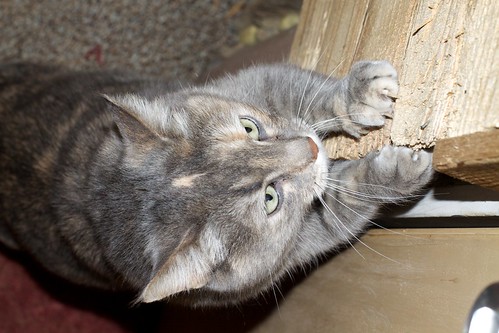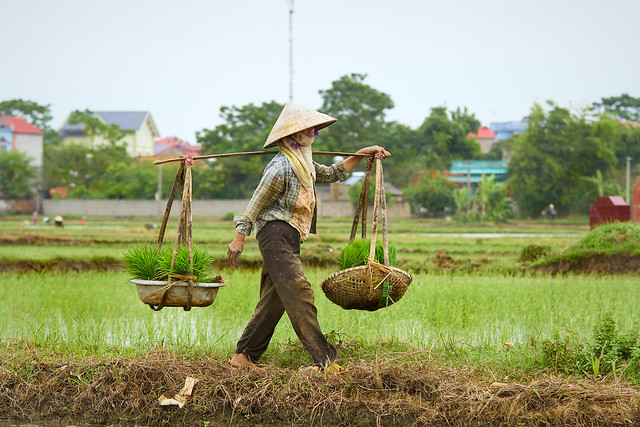Words for short, cut and related things in Celtic languages:
| Proto-Celtic | *birros = short |
|---|---|
| Old Irish (Goídelc) | berr [bʲer͈] = short berraid = to shear, clip, shave, cut, shear, tonsure |
| Middle Irish (Gaoidhealg) | berr, bearr = short berrad = to cut, clip, shave, cut, tonsure |
| Irish (Gaeilge) | bearr [bʲɑːɾˠ/bʲaːɾˠ] = to clip, cut, trim, cut (hair), shave, fleece (sb) bearradh = cutting bearrthóir = trimmer, shearer bearrthóireacht = trimming, cutting speech |
| Scottish Gaelic (Gàidhlig) | beàrr = short, brief (archaic) beàrr [bjaːr̪ˠ] = to cut, shave, crop, shear, pare, prune, clip, poll, dehorn |
| Manx (Gaelg) | baarey = to bare, clip, cut, dress, poll, prune, shave, trimmed baareyder = barber, cutter, shaver, clipper baarys = tonsure |
| Gaulish | *birros = a coarse kind of thick woollen cloth; a woollen cap or hood worn over the shoulders or head< |
| Proto-Brythonic | *bɨrr [ˈbɨr͈] = short |
| Middle Welsh (Kymraec) | birr, byrr = short, small, brief bŷr-brŷd = a short meal of meat uyrder, byrder = shortness, brevity |
| Welsh (Cymraeg) | byr [bɨ̞r/bɪr] = short, small, brief, concise, condensed, abrupt, curt, stingy, sparing, deficient, faulty byrbryd = light meal, lunch, snack byrbwyll = rash, reckless, thoughtless byrder = shortness, brevity, smallness, conciseness, scarity, deficiency byrdra = shortness, brevity, smallness, curtness |
| Middle Cornish (Cernewec) | ber = short, diminutive, brief beranal = asthma, shortness of breath |
| Cornish (Kernewek) | berr [bɛɹ] = short, brief berrhe = to abbreviate, shorten berrheans = abrreviation berrskrifa = to summarise berrwelyek = short-sighted |
| Middle Breton (Brezonec) | berr, ber, bèr = short, brief berr-ha-berr = very short, shortly briefly berraat = to shorten, abbreivate, reduce berradenn = shortening berradur = abbreviation |
| Breton (Brezhoneg) | berr = short, brief berr-ha-berr = very short, shortly briefly berradenn = shortening berradur = abbreviation |
Etymology: unknown
Words from the same Proto-Celtic root, via Latin and Gaulish, include beret in English, béret (beret) in French, berret (cap) in Gascon, biretta (a square cap worm by Roman Catholic priests) in English and Italian, berretto (beanie, cap) in Italian, barrete (biretta, cap) in Portuguese, birrete (biretta) in French, and βίρρος [ˈβir.ros] (a type of cloak or mantle) in Ancient Greek [source].
| Proto-Celtic | *gerros = short *gari- = short |
|---|---|
| Old Irish (Goídelc) | gerr, gearr = short, a short time, castrated gerraid = to cut, mutilate, shorten, carve garait [ˈɡarədʲ] = short |
| Middle Irish (Gaoidhealg) | gerr [ɡʲer͈] = short gairaid = to cut short, cut off, mutilate garit, garait, gairit = short (time/distance/length) |
| Irish (Gaeilge) | gearr [ɟɑːɾˠ/ɟaːɾˠ] = short; to cut, shorten, reduce gearrachán = cutting remark gearradh = cutting, cut, levy, rate, speed gearrán = gelding, pack-horse, small horse, nag, strong-boned woman gearróg = short bit, scrap, short drill or furrow, short stocky girl, short answer gearrthóg = cutting, snippet, trimmings, cutlet gearrthóir = cutter, chisel gairid [ˈɡaɾʲədʲ] = short, near, close |
| Scottish Gaelic (Gàidhlig) | geàrr [gʲaːr̪ˠ] = short, thick-set, squat, dumpy, brief, concise, succinct, scanty; to cut, carve, sever, dock goirid [gɤrʲɪdʲ] = short, brief, brusque giorraich [gʲir̪ɪç] = abbreviate, abrige, shorten, curtail giorrachadh [gʲir̪ˠəxəɣ] = abbreviation, abridgement, summary |
| Manx (Gaelg) | giare = abbreviated, abridged, abrupt, brief, brusque, compact, concise, curt, short, summary giarey = to abbreviate, abridge, axe, carve castrate, clip, cut girraghey = to abbreviate, abridge, contract, shorten |
Etymology: from the Proto-Indo-European *ǵʰer- (short). Words from the same PIE root include ह्रस्व [ˈɦɾɐs̪.ʋɐ] (short, small, dwarfish, little, low; a dwarf) in Sanskrit, and ह्रस्व [ɦɾəs̪.ʋᵊ] (a short vowel) in Hindi, and possibly girl in English [source].
Sources: Wiktionary, Am Faclair Beag, Online Manx Dictionary, Teanglann.ie, eDIL – Electronic Dictionary of the Irish Language, In Dúil Bélrai English – Old Irish glossary, Geiriadur Prifysgol Cymru, Gerlyver Kernewek, Gerlyvyr Cernewec, Dictionaire Favereau, TermOfis, Le dictionnaire diachronique du breton, Geriafurch, English – ProtoCeltic WordList (PDF), Etymological Dictionary Of Proto Celtic










